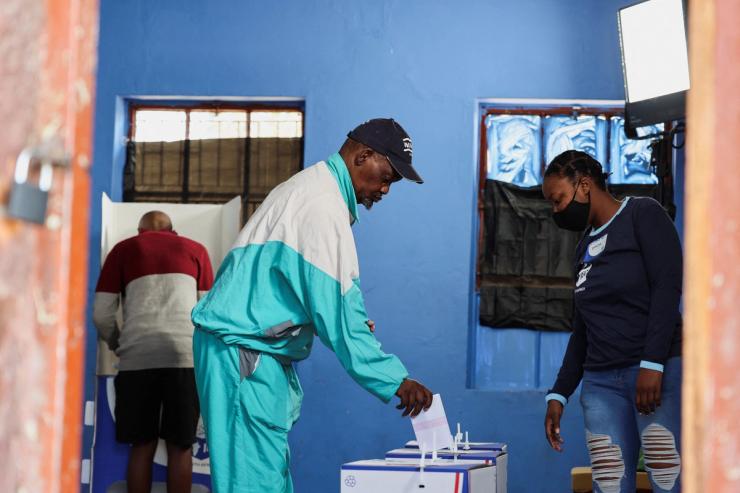The News
South Africans began voting on Wednesday in what is widely seen as the country’s most consequential election since the end of white-majority rule 30 years ago.
Polls suggest that the ruling African National Congress (ANC) may win less than 50% of votes for the first time since Nelson Mandela swept to power in 1994, while the party is still expected to secure the largest share of the vote.
Incumbent President Cyril Ramaphosa’s party is facing 51 opposition parties in this election, including the uMkhonto weSizwe (MK) party, headed by former President Jacob Zuma. Ramaphosa cast his ballot in Soweto Wednesday, telling reporters he was pleased with the ANC’s campaign.
SIGNALS
Toughest election campaign since 1994
The ANC, which has held power in South Africa since apartheid ended in 1994, is contesting its trickiest election ever. It has faced a mounting public backlash against growing unemployment, poverty, and poor government services, Bloomberg noted. “You shouldn’t find me sitting here in my home in the middle of the day during work hours, but I am because I don’t have a job,” one resident in the city of Durban told ANC Chairman Gwede Mantashe during his recent canvassing trip, the outlet reported. “Those are some of the things which make me doubt whether or not I should still be voting for the ANC.”
ANC downplays risk of coalition
Advance polling has suggested that the ANC will lose its parliamentary majority, but still hold the most seats. Despite the party’s poor showing early in the campaign, the ANC has maintained that it isn’t considering a coalition government at this stage, South African outlet The Daily Maverick reported. “If the ANC goes down we will have to sit down and reflect on … the situation,” ANC election head Mdumiseni Ntuli told the paper. “We began the campaign when load shedding was worse, the crisis of water provision in parts of our country was very hard,” he added. “Where we are today, there has been a great deal of improvement and progress which is essentially to the advantage of the ANC.”
Ramaphosa losing support among nation’s elites
Black middle-class voters have long championed the incumbent President Cyril Ramaphosa — but the demographic has turned away from him in recent months as South Africa’s economy has stagnated, The New York Times reported. There is also discontent with the limited action Ramaphosa’s government has taken to address corruption: “I think he lacks a backbone,” one voter told the Times. The president’s approval has also plummeted among Black elites in recent years, dropping from a 51% approval rating shortly after his election in 2018 to just 30% ahead of this year’s election.


